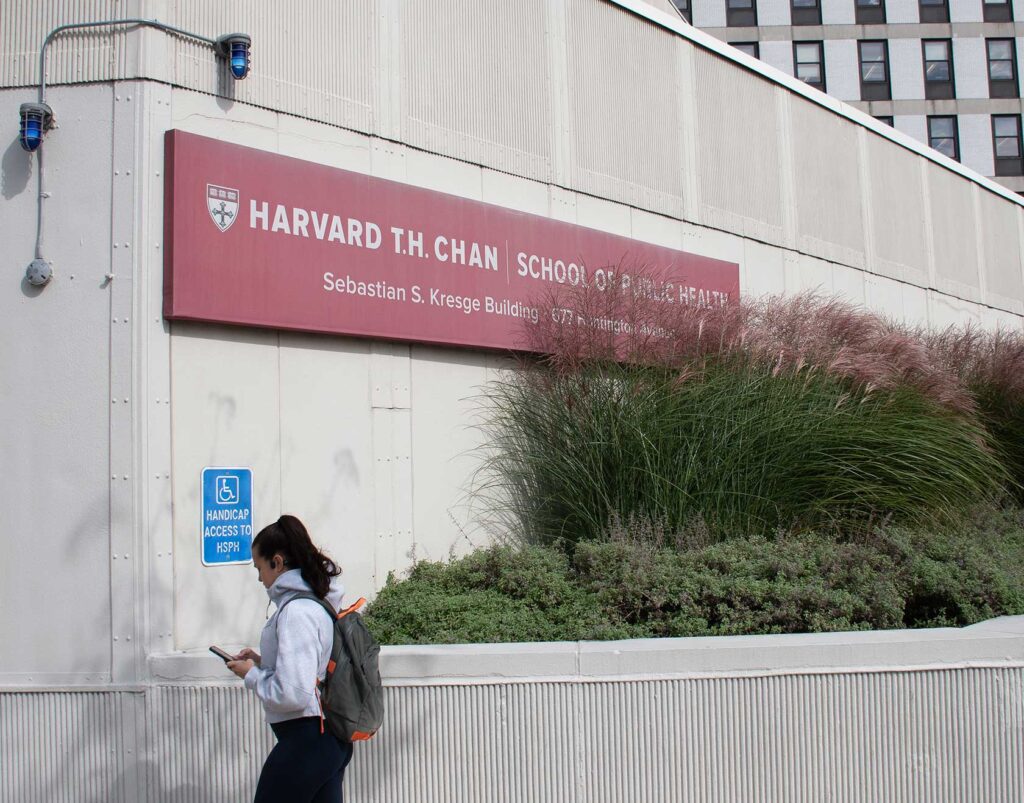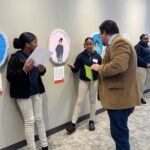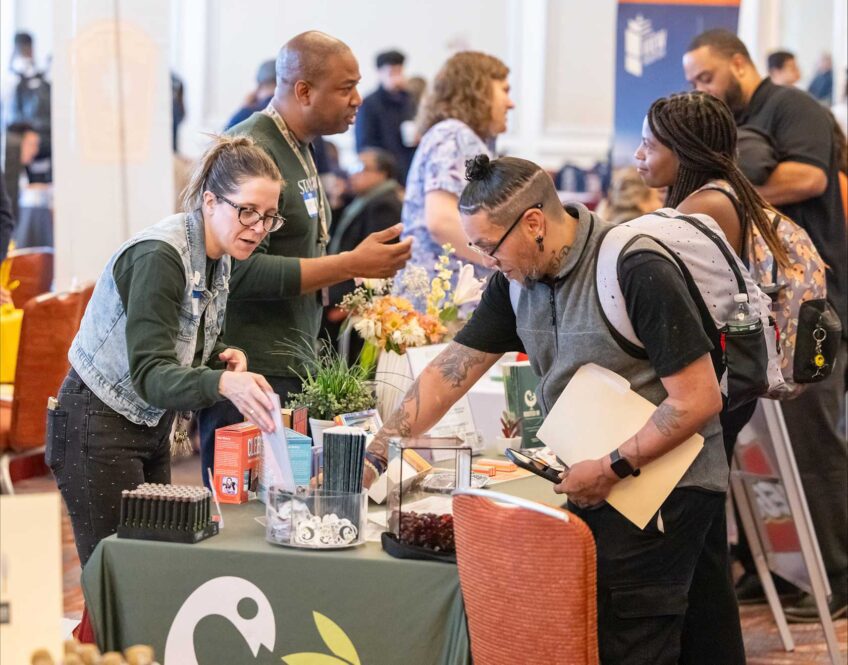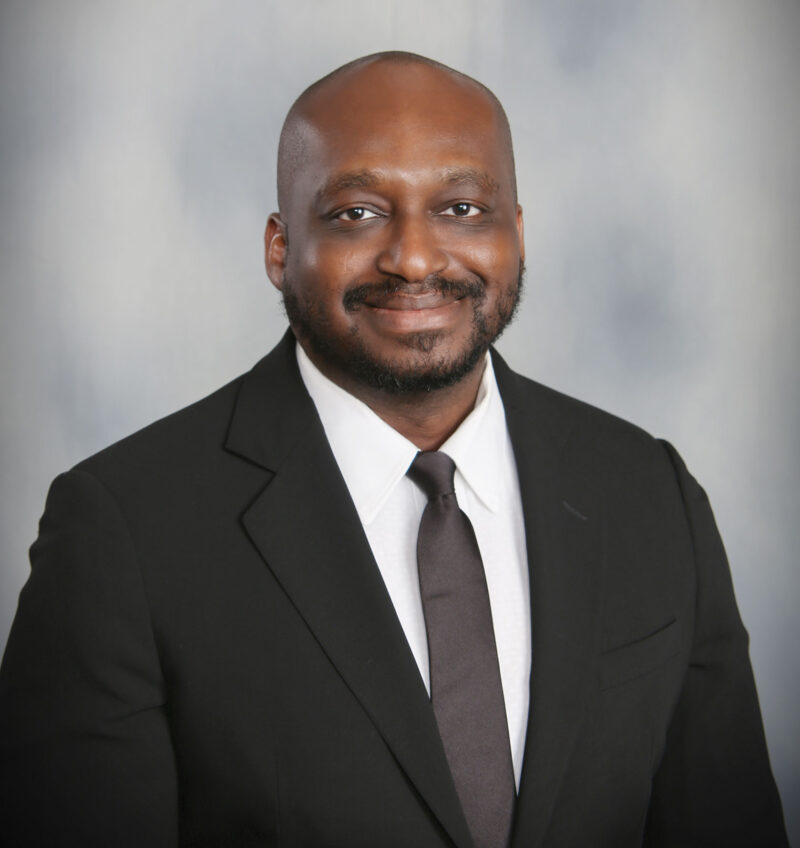Study highlights harmful Black hair care products
Stores in Black, low-income areas carry more toxic items

Stores in Roxbury, Mission Hill and other low-income and predominantly Black neighborhoods in the city are more likely to sell hair care products that contain potentially harmful chemicals when compared to stores in more affluent communities, according to a study conducted in Boston by the Harvard T.H. Chan School of Public Health.
The study, published last month in the journal Environmental Health Perspectives, aims to shed light on an issue that traditionally affects Black women, who have had to radically change their hair and hair care to be socially accepted.
The Harvard study aims to not only raise awareness about hair straighteners and other hair care products, but also to put focus on the hair care industry itself.
“There’s a tendency to lean towards just individual-level behaviors. However, product use is really the result of different systems,” said Marissa Chan, one of the study’s researchers.
Black women, facing hair discrimination, have had to conform to a Eurocentric standard of beauty, using hair care products to wash, condition and straighten their hair that may not always be good for them.
The issues around hair care products have come up in a variety of ways in recent years. The NAACP adopted a resolution this summer to raise awareness about the link between chemicals in certain hair products and uterine cancer. And the Food and Drug Administration has proposed a ban on the using certain chemicals in hair straightening products used mostly by Black women — a move heralded by Congresswoman Ayanna Pressley.
“Black women are disproportionately put at risk by these products as a result of systemic racism and anti-Black hair sentiment,” said Pressley, who had previously urged the FDA to investigate health risks to Black women consumers.
“Regardless of how we wear our hair,” she added, “we should be allowed to show up in the world without putting our health at risk.”
The Harvard researchers focused on hair care products sold in Boston’s communities of color compared with some of the city’s more affluent neighborhoods.
They analyzed more than 14,000 hair products in more than 50 stores in Chinatown, Dorchester, East Boston, Mission Hill, Mattapan and Roxbury. They also looked at stores in tony Beacon Hill and downtown.
The neighborhoods were selected based on racial and ethnic composition as well as the percentage of people who live below the poverty level.
To determine how potentially harmful a product was, researchers used a database to assign the project a hazard score. They also identified a scope of factors, from individual choice to racism and policies that often steer less expensive and more harmful products toward lower-income neighborhoods.
The researchers noted the presence of endocrine-disrupting chemicals, which function like the body’s hormones and affect individuals or the fetus in pregnant people.
Chan said she wanted to understand how endocrine-disrupting chemicals affect pregnancy outcomes, as well as other biological factors, like the age of the first menstrual cycle.
The Harvard team said their work is not over. They still need to figure out the full extent of the harm from these chemicals.
The team is working on collecting data for all neighborhoods in Boston to see if their results hold up on a broader scale.
Traci Bethea, an assistant professor at Georgetown University who has done work around endocrine-disrupting chemicals, said more research needs to be done.
“We don’t want to terrify people about the world, but it can be something that’s important, because most folks are exposed to multiple types of endocrine-disrupting chemicals, and we’re still learning what that really might mean,” said Bethea, who was not involved with the Harvard study.
Bethea said individuals seeking to avoid the chemicals should check out various online databases and apps that track chemicals and products. Chan suggested the Environmental Working Group’s Skin Deep database, the Campaign for Safe Cosmetics’ Non-Toxic Black Beauty Database and the Silent Spring Institute’s Detox Me app, to look up products or ingredients.
Eliminating the chemicals also comes down to personal tradeoffs.
“I do a lot of work with cancer survivors and sometimes I’m like, ‘Well, if that lipstick is the power lipstick that helps you leave your house and have a functional day, then there’s a value to that,’” Bethea said. “So, you might want to address your exposure by changing the products you use to clean.”
Researchers said that people might see the way around these harmful issues as buying products that are less harmful. But based on the results of the study, those less harmful products are not easily available in their neighborhoods.
To properly address disparities in access, Chan said there must be wider-reaching conversations to address the community-level factors around what products women of color want and where those products are actually being sold.
“We cannot shop our way out of this issue. This needs to be a broader discussion, and a variety of different folks from different fields need to be involved,” she said. “Policymakers, businesses, researchers including myself, clinicians in terms of informing their patients — it really will take all of us in our respective fields to push towards beauty justice.”

![Banner [Virtual] Art Gallery](https://baystatebanner.com/wp-content/uploads/2024/05/PFW_3-150x150.jpg)




